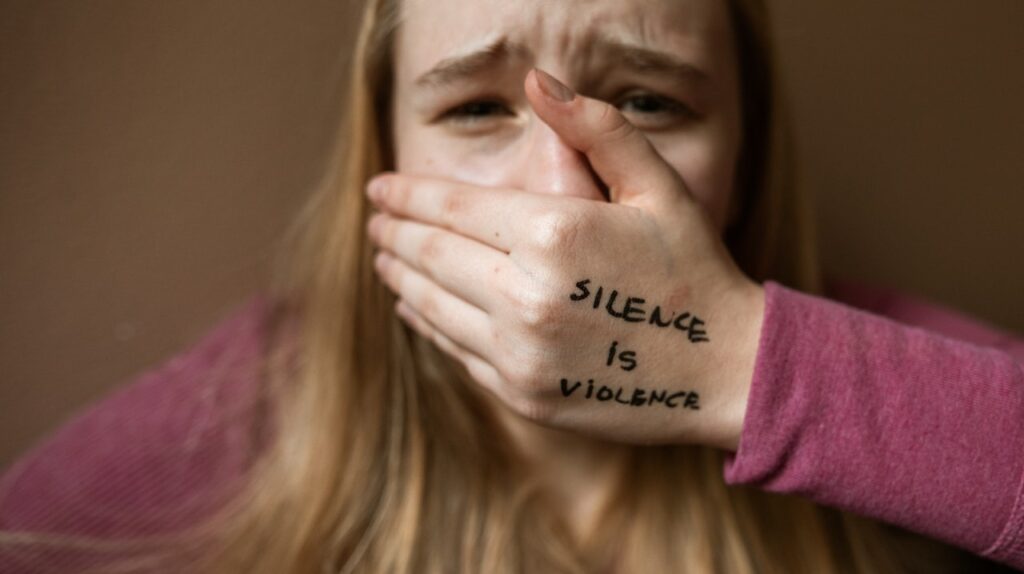My Partner is Verbally Abusive: How to Deal

In a world where love and companionship are celebrated, it can be particularly challenging to admit when a relationship turns sour. Verbal abuse is a painful reality for many individuals, yet it often remains hidden behind closed doors. If you’ve found yourself in a situation where your partner is verbally abusive, it’s crucial to recognize the signs, understand the impact it can have on your well-being, and take steps to address it. In this blog post, we will explore what verbal abuse is, its effects on mental health, and strategies for coping and seeking help.
Defining Verbal Abuse
Verbal abuse is a form of emotional abuse that involves the use of harsh, hurtful words, and manipulation to control or demean a partner. It may manifest in various ways, such as yelling, name-calling, constant criticism, threats, and humiliation. Verbal abuse can be just as damaging as physical abuse, leaving emotional scars that can last a lifetime.
Recognizing the Signs
Verbal abuse can be insidious, gradually escalating over time. It’s essential to recognize the signs early to protect your mental and emotional well-being. Some common signs of verbal abuse include:
1. Name-calling: Frequent use of derogatory names or insults.
2. Humiliation: Publicly embarrassing or belittling you.
3. Threats: Making threats of physical harm or abandonment.
4. Blame-shifting: Holding you responsible for their actions or emotions.
5. Isolation: Attempting to cut you off from friends and family.
6. Gaslighting: Manipulating your perception of reality to make you doubt your sanity.
The Impact of Verbal Abuse
Verbal abuse can have severe consequences on your mental health and overall well-being. It can lead to:
1. Low self-esteem: Constant criticism and belittlement can erode your self-worth.
2. Anxiety and depression: Living in a hostile environment can lead to these mental health issues.
3. Isolation: Verbal abuse can cause you to withdraw from friends and family.
4. Physical health problems: Chronic stress from verbal abuse can lead to physical health issues like headaches and digestive problems.
Coping Strategies
If you find yourself in a verbally abusive relationship, here are some strategies to help you cope:
1. Set boundaries: Clearly communicate your boundaries and what behavior is unacceptable.
2. Seek support: Reach out to friends, family, or a therapist for emotional support.
3. Keep a journal: Document instances of abuse to gain clarity and validate your experiences.
4. Practice self-care: Prioritize self-care activities like exercise, meditation, and hobbies.
5. Consider professional help: A therapist can help you navigate the emotional turmoil and make informed decisions about your relationship.
Seeking Help and Safety When Your Partner is Verbally Abusive
Your safety should be the top priority. If you feel physically threatened or believe your life is in danger, contact the authorities immediately. If you decide to leave the relationship, consider these steps:
1. Create a safety plan: Plan how to leave safely, including where you’ll go and who can support you.
2. Legal protection: If necessary, seek a restraining order or legal protection against your abuser.
3. Therapeutic support: Continue therapy to heal from the emotional scars of verbal abuse.
FAQ: Understanding and Dealing with Verbal Abuse in Relationships

Explore frequently asked questions about verbal abuse in relationships, its effects, and how to address this challenging issue for a healthier and safer future.
Q1: What is verbal abuse in a relationship?
A: Verbal abuse in a relationship involves the use of harsh, hurtful words, threats, and manipulation to control or demean a partner emotionally. It can manifest as name-calling, yelling, constant criticism, humiliation, and more.
Q2: How can I recognize if I am in a verbally abusive relationship?
A: Some signs of a verbally abusive relationship include name-calling, humiliation, threats, blame-shifting, isolation from friends and family, and gaslighting. If you consistently feel belittled or controlled, it may be verbal abuse.
Q3: What are the effects of verbal abuse on mental health?
A: Verbal abuse can lead to low self-esteem, anxiety, depression, isolation, and physical health problems due to chronic stress. It can have a profound impact on your overall well-being.
Q4: How can I cope with verbal abuse in my relationship?
A: Coping strategies include setting clear boundaries, seeking support from friends, family, or a therapist, keeping a journal to document instances of abuse, practicing self-care, and considering professional help.
Q5: What should I do if I feel physically threatened in a verbally abusive relationship?
A: If you feel physically threatened or believe your life is in danger, your safety is paramount. Contact the authorities immediately to ensure your safety.
Q6: How can I leave a verbally abusive relationship safely?
A: Leaving a verbally abusive relationship safely involves creating a detailed safety plan, seeking legal protection, if necessary (such as a restraining order), and continuing therapy to heal from emotional scars.
Q7: Is it possible to repair a verbally abusive relationship?
A: Repairing a verbally abusive relationship is possible but requires commitment from both partners to change, seek therapy, and address the underlying issues. It’s essential to prioritize safety and well-being during this process.
Q8: How can I rebuild my self-esteem after experiencing verbal abuse?
A: Rebuilding self-esteem after verbal abuse may involve therapy, self-care, positive affirmations, and surrounding yourself with supportive people who uplift you.
Q9: What are some resources available for individuals dealing with verbal abuse?
A: There are various resources available, including hotlines, support groups, therapists, and legal services, that can provide assistance and guidance to individuals facing verbal abuse in their relationships.
Q10: What are the long-term effects of staying in a verbally abusive relationship?
A: Staying in a verbally abusive relationship can lead to ongoing emotional trauma, further damage to self-esteem, worsening mental health, and a prolonged cycle of abuse. It’s essential to seek help and support to break free from such a relationship.
Q11: How do you treat someone who is verbally abusive?
A: Treating someone who is verbally abusive can be challenging, but it’s essential to prioritize safety and encourage behavioral change. Here are some steps:
– Set boundaries: Clearly communicate that their behavior is unacceptable and specify consequences if it continues.
– Encourage therapy: Suggest individual or couples therapy to address the underlying issues.
– Seek support: Encourage them to seek support from friends, family, or a therapist.
– Educate: Share resources and information on the impact of verbal abuse to promote understanding and change.
Q12: What causes a person to become verbally abusive?
A: Verbal abuse can have various underlying causes, including:
– Past trauma: A history of abuse or trauma can contribute to abusive behavior.
– Unresolved issues: Unaddressed emotional or psychological issues can manifest as verbal abuse.
– Poor communication skills: An inability to communicate effectively can lead to frustration and resorting to verbal abuse.
– Control issues: Some individuals use verbal abuse as a means of control in a relationship.
– Learned behavior: Growing up in an environment where verbal abuse was normalized can lead to repeating the pattern.
Q13: What words are considered verbal abuse?
A: Verbal abuse can encompass a wide range of hurtful words and phrases. Some examples include:
– Name-calling: Using derogatory names or insults to demean someone.
– Yelling or screaming: Using loud and aggressive tones to intimidate or control.
– Constant criticism: Continuously finding fault and belittling the other person.
– Humiliation: Publicly embarrassing or demeaning the individual.
– Threats: Making threats of physical harm, abandonment, or other forms of retaliation.
– Blame-shifting: Holding the person responsible for the abuser’s actions or emotions.
– Gaslighting: Manipulating the individual’s perception of reality to make them doubt their sanity.
These are just a few examples, and verbal abuse can take many forms, all of which are intended to harm and control the victim emotionally.
Conclusion
Verbal abuse is a painful and damaging experience, but it’s important to remember that you don’t have to endure it alone. Recognizing the signs, seeking support, and prioritizing your safety and well-being are crucial steps in breaking free from the cycle of verbal abuse. Remember that you deserve love, respect, and a healthy relationship.





